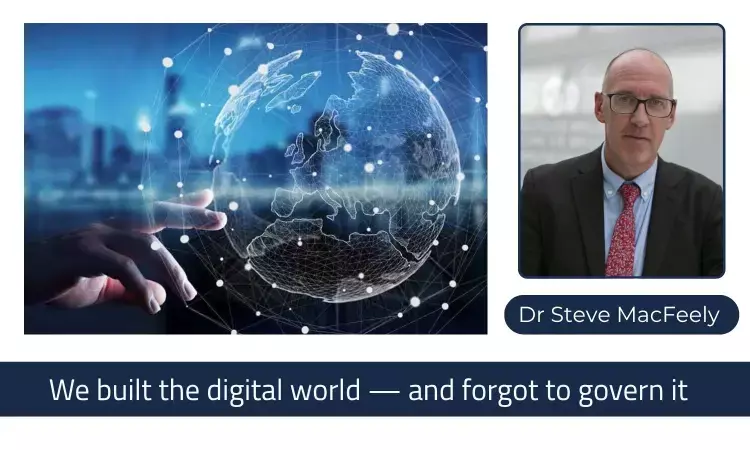- Home
- Medical news & Guidelines
- Anesthesiology
- Cardiology and CTVS
- Critical Care
- Dentistry
- Dermatology
- Diabetes and Endocrinology
- ENT
- Gastroenterology
- Medicine
- Nephrology
- Neurology
- Obstretics-Gynaecology
- Oncology
- Ophthalmology
- Orthopaedics
- Pediatrics-Neonatology
- Psychiatry
- Pulmonology
- Radiology
- Surgery
- Urology
- Laboratory Medicine
- Diet
- Nursing
- Paramedical
- Physiotherapy
- Health news
- Fact Check
- Bone Health Fact Check
- Brain Health Fact Check
- Cancer Related Fact Check
- Child Care Fact Check
- Dental and oral health fact check
- Diabetes and metabolic health fact check
- Diet and Nutrition Fact Check
- Eye and ENT Care Fact Check
- Fitness fact check
- Gut health fact check
- Heart health fact check
- Kidney health fact check
- Medical education fact check
- Men's health fact check
- Respiratory fact check
- Skin and hair care fact check
- Vaccine and Immunization fact check
- Women's health fact check
- AYUSH
- State News
- Andaman and Nicobar Islands
- Andhra Pradesh
- Arunachal Pradesh
- Assam
- Bihar
- Chandigarh
- Chattisgarh
- Dadra and Nagar Haveli
- Daman and Diu
- Delhi
- Goa
- Gujarat
- Haryana
- Himachal Pradesh
- Jammu & Kashmir
- Jharkhand
- Karnataka
- Kerala
- Ladakh
- Lakshadweep
- Madhya Pradesh
- Maharashtra
- Manipur
- Meghalaya
- Mizoram
- Nagaland
- Odisha
- Puducherry
- Punjab
- Rajasthan
- Sikkim
- Tamil Nadu
- Telangana
- Tripura
- Uttar Pradesh
- Uttrakhand
- West Bengal
- Medical Education
- Industry
In the Digital Age, Data Is Power - And We're Losing It - Dr Steve MacFeely

The data world has transformed, almost beyond recognition, over the past 30 or 40 years. In no small measure, this transformation has been driven by the digital and ICT revolutions. These revolutions have produced a deluge of by-product of digital data. These changes have been relentless and rapid, leaving many decision makers feeling overwhelmed.
A consequence is that many senior decision makers do not appear to understand the quickly evolving digital world we inhabit. A simple illustration speaks volumes – as governments around the world outsource public services to the private sector, they do not explicitly address data ownership in the contracts, surrendering a most valuable asset - data. Later these valuable administrative data must be purchased back by governments to replace the data they held originally. Equally, we hear continual references to digital and AI governance, but with no serious thought given to the quality and governance of the underlying data.
Digital data require infrastructure, similar to more traditional resources (think oil, coal, gas…). Data too must be extracted, cleaned, stored, transported, secured and disseminated. The design of efficient infrastructure will not happen by accident but will require deliberate and careful architectural planning. Put another way, good quality data will not fall out of the sky by magic or for free – they require resources and intentional design.
Health infrastructure must facilitate a break away from the traditional ‘Health Information System’ silo, that treats health as a closed system, to an open ‘Information Systems for Health’ that links health data to both health determinants and outcomes. In practice, this means being able to link data from health, education, economy, environment and so forth.
Data linking implies data sharing. For example, patient held digital medical records will require quite sophisticated data governance. Clear legal and technical protocols must be put in place if data are to be shared, especially if those data are personally identifiable (PIIs). A minimal requirement is that privacy is protected. If those data are moving between jurisdictions an international data governance framework is required.
Today, data are at the heart of almost every activity, a ubiquitous globalized resource, easily shared, duplicated, traded and exchanged. Data transcend borders, challenge national sovereignty and are increasingly being thought of as a new form of capital. Data are central to modern communications, government, social media, the cloud, blockchain, the internet of things, crypto and artificial intelligence. Governments who do not take data, data infrastructure and data governance seriously will fail to protect their citizens and prepare their countries for the digital age.
Disclaimer: The views expressed in this article are of the author and not of Medical Dialogues. The Editorial/Content team of Medical Dialogues has not contributed to the writing/editing/packaging of this article.
Dr. Steve MacFeely is the Chief Statistician and Director of the Statistics and Data Directorate at the OECD in Paris. He is also Adjunct Professor at the Department of Economics at University College. Prior to joining the OECD, Steve served as the Director of Data and Analytics at the World Health Organization and as Director of Statistics and Information at UN Trade and Development.


